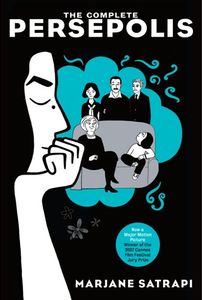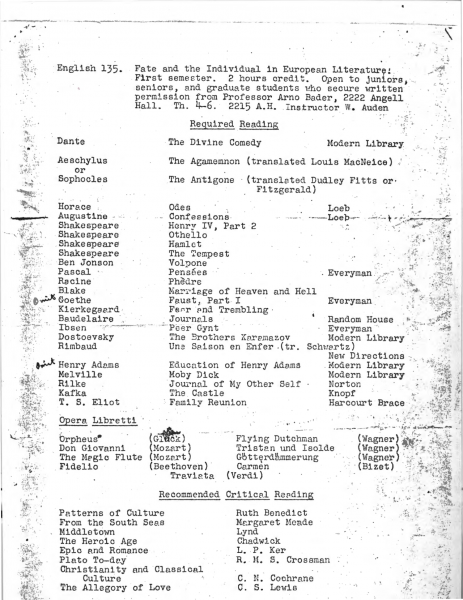February 25, 2013 at 3:04 pm
To all CC105 students,
Nate and Gayle, your Core Mentors, will be sending out weekly emails summarizing the important topics from the lectures that week, reminding you of assignments and giving you links to some science articles that you may find interesting. The Core Blog will regularly be updated with what is being sent in these emails. For last week:
Important Topics:
- Physiology of vision
- Specifically the structure of cells within the retina and how that is advantageous or disadvantageous
- Lateral Inhibition
- Spikes
- Top down and Bottom up processing
- Factors influencing perception of environment
Reminders:
- You should have a topic idea for your paper ready for your discussion tomorrow!
Interesting Articles:
- “DNA Test for Rare Disorders Becomes More Routine”, New York Times: http://nyti.ms/Xx5UYH
- “As Wolves’ Numbers Rise, So Does Friction Between Guardians and Hunters”, New York Times: http://nyti.ms/YvCF8R
- “The genomic signature of dog domestication reveals adaptation to a starch-rich diet”,Nature: http://bit.ly/13aVUZb
If you have any questions, email Nate (ndf93@bu.edu) or Gayle (gminer@bu.edu)!!
By mdimov
|
Posted in Academics, Announcements, Curriculum, General Announcements
|
Tagged CC105, Core Mentors, email, help, information, reminders, study, success, topics, work
|
February 22, 2013 at 10:05 am
Adam Kirsch discusses whether or not essays are "extinct" as a form of writing, and references Michel e Montaigne, whose work is studied in CC201. Here is a sample:
The essay, traditionally, was defined by its freedom and its empiricism—qualities that it inherited from its modern inventor, Montaigne. “What do I know?” Montaigne asked, and the essay is the form that allows both the “I” and the thing it knows equal prominence. For this reason, the essay could address any subject, exalted or trivial, as long as it displayed the mind of the writer engaged with the world. The subjects in The Oxford Book of Essays, edited by the late John Gross, range from truth and dreams to wasps and the Hoover Dam. Not coincidentally, some of the greatest essays, from Addison on Paradise Lost to Mill on Coleridge, are engaged with texts, which is to say, with other minds. For the essay is one of the purest ways for a writer’s mind to record its own motions, which are the basis of prose style.
For the full article, visit http://on.tnr.com/W7VgcS
By mdimov
|
Posted in Academics, Future of the Book, Great Questions
|
Tagged autobiography, CC201, essay, expression, extinct, form, modern, Montaigne, writing
|
February 21, 2013 at 2:12 pm

The EnCore book club met this month to discuss the popular graphic novel Persepolis, by Iranian artist Marjane Satrapi. It was an unusual choice for the group for a variety of reasons: the book is a memoir of a young girl growing up in revolutionary Iran, it was originally written in French, and it was published as a graphic novel. By choosing this medium, Satrapi tells her story as much through her black and white, Matisse-like artwork as she does through her words.
The conversation veered from the nature of comics as art to political realities and fiction. Would Satrapi's story have beeen better told in the form of a conventional book? Would Iran's cultural story? What do we in America think about the fact that much of the political and moral vitriol many Iranians feel towards the West is due to the role America and Britain had in establishing the Shah's regime early in the 20th century? Is Persepolis less valuable for its focus on art and the individual over historical accuracy, or is that an irrelevant point?
Satrapi herself has been quoted as saying that the facts of the story, as we read it, must be seen exclusively from the perspective of her young self at the time. For example, some minor plot details are actually historically inaccurate, because they reflect the strongest rumors that were circulating at that time (e.g. which political groups were in charge of certain attacks on buildings or protest crowds). Narrow in scope or not, Satrapi's background and personal experience (coming from a "Westernized" and cultivated intellectual family, living through the Iraq-Iran war, studying abroad, and returning to her homeland) offer a unique, funny, and compelling glimpse into the aftermath and ongoing consequences of the Iranian Cultural Revolution.
EnCore held a screening of the award-winning film Persepolis (2007) on February 20th at the Kenmore Classroom Building, to further explore how this unconventional book was adapted to the unconventional medium of animation, and what was gained or lost as a result.
Does this sound like a discussion you would have wanted to take part in? EnCore will continue its Revolutionary Theme next month with Former People, a look at the fall of the Russian aristocracy after the 1917 Bolshevik revolution. Regardless of whether you've read all, part, or none of the book, we look forward to seeing any Core folks join us on March 6th for another fun discussion.
By Core Alumni
|
Posted in EnCore, EnCore Authors, Uncategorized
|
Tagged EnCore
|
February 21, 2013 at 11:00 am
In view of CC102's study of the Analects of Confucius, the Core presents an interesting discussion of Confucian ethics when applied to international relations. Here is a sample:
Chinese ethics is a deontological system that has a continuity spanning a range from personal to public concerns, without differentiation. A good society, a good state, and a good world all have to rest upon the foundation of good individuals. Between the world (tien-hsia), which is a universal, cultural order with little racial implication, and individuals, who are expected to achieve self-cultivation of virtues, are the state and the family or household, the most crucial social entities, with the individual, oneself, as the root of good order at every level.
These general principles formed during the time of the ancient Chinese multistate system reveal an anticipation of a universal order to arrive at some later time. The unification of China by the end of the Warring States period indeed fulfilled the expectation of the emergence of such a universal order.
From then on, the Chinese often believed that the tien-hsia, with China as its center, was universal and that only state boundaries within China would appear meaningless but there would also be no clear-cut boundaries throughout the entire tien-hsia. Instead, there would be only a gradually fading relationship between the center and the peripheries as distances from the center increased – again, a spatially and culturally arranged continuity. A hierarchy of differentiated relationships was thus the trademark of this sinocentric interstate order.
For the full text, visit http://bit.ly/11WmBBq
By mdimov
|
Posted in Academics, Curriculum, Great Ideas, Great Questions
|
Tagged application, CC102, Confucian, Confucius, ethics, idea, international, modern, relations, text
|



